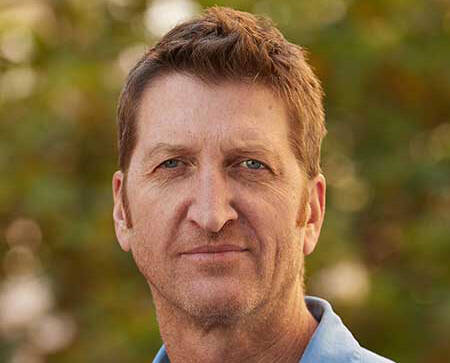Most dangerous pandemic? Misinformation
Gov. (Steve) Sisolak made headlines recently by lifting Nevada’s mask mandate that was enacted in response to the coronavirus pandemic. The move, mirrored in several other states last week, reflected sharp declines in several key public health indicators, and signaled the welcome news that the worst of the COVID-19 pandemic may be behind us.
And yet, just as we appear to be rounding the corner on the coronavirus, the country seems to be in the tightening grip of yet another, even more dangerous pandemic — misinformation. From digital, global mega-platforms such as Facebook and Spotify, to our local newspaper, the misinformation pandemic rages on. And without decisive and swift action to combat it, this pandemic threatens not only our health, but our social institutions and perhaps even our democracy itself.
Public health experts can disagree about how we should translate facts about the coronavirus into public policy, such as mask mandates. Gov. Sisolak’s recent lifting of the mask requirement is a perfect example of this. Indeed, while there is not consensus among health experts that it is now safe to lift mask requirements, the facts regarding recent trends in key indicators, including new cases, hospitalizations, and deaths due to COVID-19 are not disputed; after reaching record highs, the U.S. is seeing a sharp decline in all three numbers.
For some public health officials, these are incredibly promising figures, but do not warrant lifting important public health measures like masking in public just yet. After all, according to Centers for Disease Control and Prevention data, while new cases are down sharply, there are still over 200,000 new cases being reported daily across the U.S., with over 100,000 Americans currently hospitalized, 20,000 in intensive care units, and over 2,500 people dying per day (with daily deaths due to the coronavirus 20 times higher among unvaccinated compared to fully vaccinated people).
Thankfully, here in Clark County, the 14-day trend is trending down steeply as well, but we’re still recording 737 new cases a day, on average (CDC tracking data). Despite this, the decision by the governor to lift Nevada’s mask mandate in light of lower-trending numbers is a defensible one to most health experts. After all, what to do as a governor, or business owner, or school principal when confronted with these facts is a matter of judgment. The facts themselves, however, are not in dispute.
Too often in popular print, and social media, however, the facts are in dispute. Indeed, rather than simply questioned, facts are misrepresented, disregarded and denied. While anti-factual claims are sometimes made outright, without any credible evidence (e.g., the 2020 presidential election was plagued by massive voter fraud), in other instances misinformation is defended as mere “opinion” or “inquiry.”
Joe Rogan, whose Spotify podcast has the largest audience in the world — approximately 11 million listeners a week — was called out recently in an open letter signed by 270 doctors, public health researchers and science educators who warned that Rogan’s “Hey, I’m just asking the question” approach to misinformation regarding the safety and effectiveness of COVID-19 vaccines, mortality statistics and unproven treatments, made him a “menace to public health.” They also encouraged Spotify to develop a comprehensive policy prohibiting misinformation.
Other digital mega-platforms such as Twitter and Facebook have faced similar calls to crack down — not on people’s constitutionally protected freedom to express their personal beliefs or opinions — but on verifiable falsehoods and misinformation.
The misinformation pandemic is allowed to spread in local media as well. A recent “opinion” column in this paper made factually incorrect statements about the health-protecting effects of masks being limited only to the wearer (see CDC research that corrects this falsehood here https://www.cdc.gov/coronavirus/2019-ncov/science/science-briefs/masking-science-sars-cov2.html).
The COVID-19 pandemic isn’t the only fertile ground for misinformation. As we’ve seen, repeated falsehoods delivered by trusted figures can lead to tragic consequences, like the Jan. 6 assault on our Capitol last year. That assault did not lead to a constitutional crisis, but what about next time?
There will be no miraculous vaccine developed for the misinformation pandemic. The only possible cure for this scourge is the principled action of public officials, media editors, communication directors and corporate leaders that refuse to provide a broadcasting platform for verifiably false information. Our personal health, and the health and survival of our democracy may depend on it.
The opinions expressed above belong solely to the author and do not represent the views of the Boulder City Review. They have been edited solely for grammar, spelling and style, and have not been checked for accuracy of the viewpoints.
Daniel Benyshek is professor of medical anthropology at UNLV and a proud Boulder City resident.





